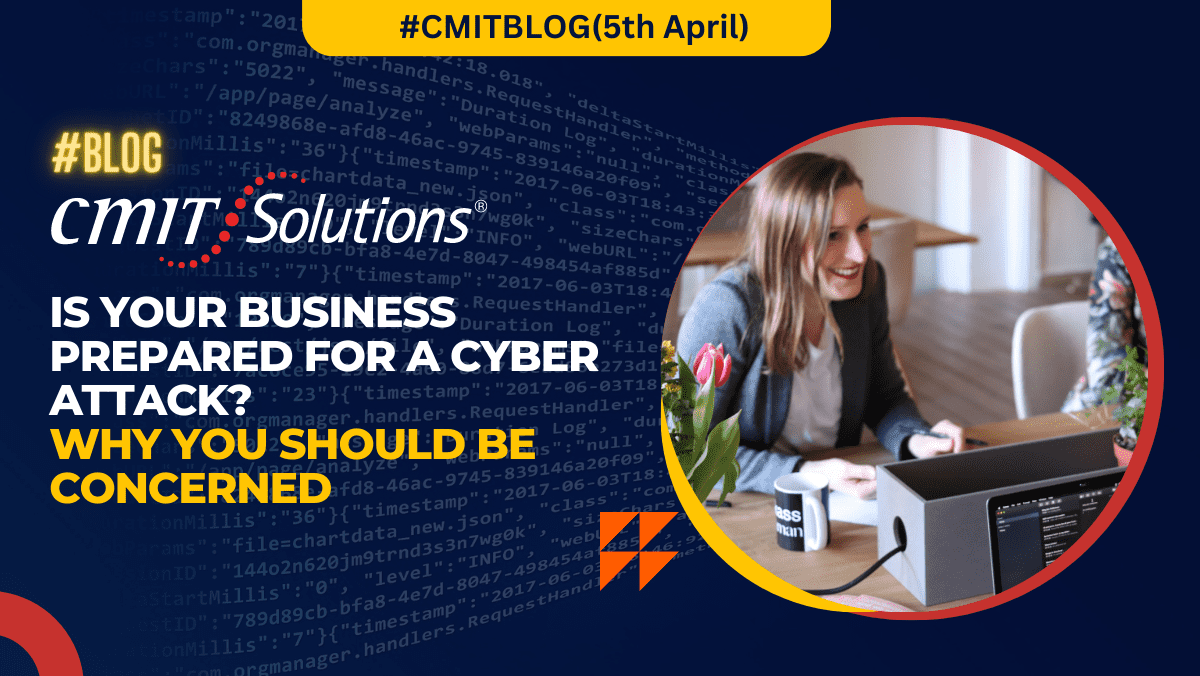In today’s digital age, cyber attacks are becoming increasingly common, and businesses are prime targets for cyber criminals. As a business owner, it’s important to be aware of the risks and take steps to protect your company from cyber threats. In this blog post, we’ll explore why you should be concerned about cyber attacks and how to ensure that your business is prepared.
Why You Should Be Concerned
1.Financial Loss: A cyber attack can lead to significant financial losses for your business. Hackers can steal sensitive data or ransom it for a large sum of money, leaving your business with a hefty bill. Not only will you have to pay for the damages, but you may also face legal fees and reputational damage.
2.Legal Issues: If your business is not compliant with cybersecurity laws and regulations, you could face legal issues. For example, if you handle customer data, you must comply with regulations such as GDPR and CCPA. If a cyber attack exposes customer data and you’re found to be non-compliant, you could face lawsuits and fines.
3.Reputational Damage: A cyber attack can damage your business’s reputation. If your customers’ data is compromised, they may lose trust in your business, and this could lead to a loss of revenue. Additionally, news of a cyber attack can spread quickly, and potential customers may be hesitant to do business with you.
4.Disruption of Business Operations: A cyber attack can disrupt your business operations, leaving you unable to serve your customers. This can lead to a loss of revenue and damage to your reputation. In some cases, a cyber attack can even lead to a complete shutdown of your business.
How to Prepare for a Cyber Attack
1.Conduct a Risk Assessment: Identify the risks to your business and the potential impact of a cyber attack. This will help you prioritize your cybersecurity efforts and allocate resources where they’re needed most.
2.Implement Cybersecurity Best Practices: Implement best practices for cybersecurity, such as strong passwords, two-factor authentication, and regular software updates. Additionally, ensure that your employees are trained in cybersecurity best practices and that they understand the importance of protecting company data.
3.Back Up Your Data: Regularly back up your data to an off-site location, such as the cloud or an external hard drive. This will ensure that your data is safe in the event of a cyber attack or other disaster.
4.Invest in Cybersecurity Solutions: Invest in cybersecurity solutions such as firewalls, anti-virus software, and intrusion detection systems. These solutions can help protect your business from cyber attacks and ensure that your data is secure.
5.Develop an Incident Response Plan: Develop an incident response plan that outlines the steps your business will take in the event of a cyber attack. This plan should include procedures for identifying and containing the attack, notifying customers and employees, and restoring operations.
Cyber security resources for small businesses
Small businesses are often the target of cyber attacks because they are seen as easy targets. However, there are a number of steps that small businesses can take to protect themselves from these attacks.
One of the most important things that small businesses can do is to educate themselves and their employees about cyber security threats. There are a number of resources available to help with this, including the Small Business Association’s website and the Department of Homeland Security’s Stop Think Connect campaign.
In addition to education, small businesses should also have a plan in place in case of a cyber attack. This plan should include what to do in the event of an attack, how to contact customers and employees, and how to recover data and systems.
Finally, small businesses should make sure that they have adequate cyber insurance in place. This insurance can help cover the costs associated with recovering from an attack, as well as any legal expenses that may be incurred.
Conclusion
Cyber attacks are a growing threat to businesses, and it’s important to be prepared. By implementing best practices for cybersecurity, investing in cybersecurity solutions, and developing an incident response plan, you can protect your business from cyber threats. Remember, the cost of not being prepared for a cyber attack can be significant, and it’s much better to be proactive than reactive. Don’t wait until it’s too late – start taking steps to protect your business today.





